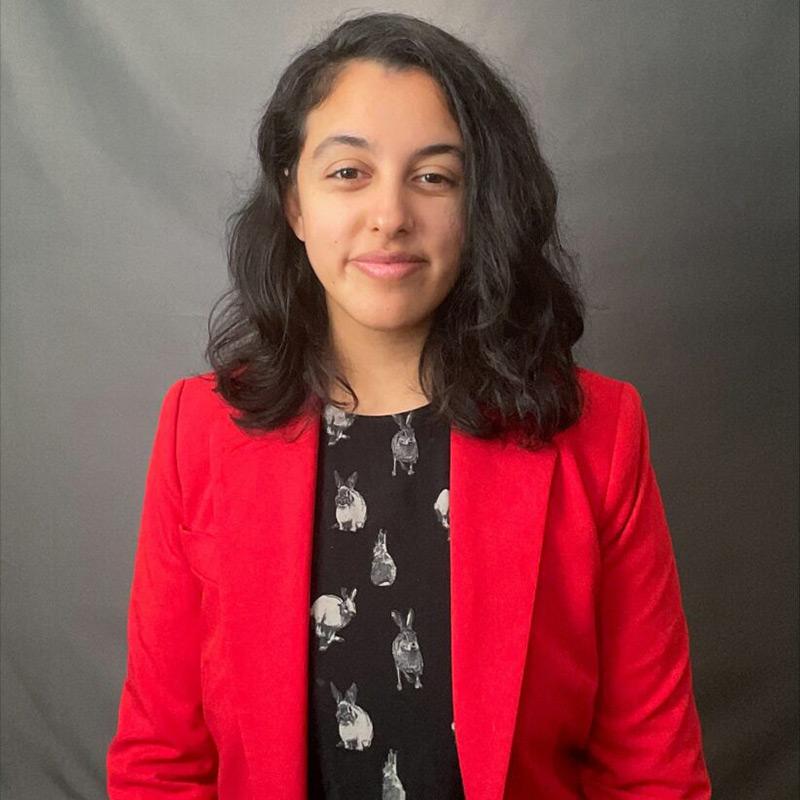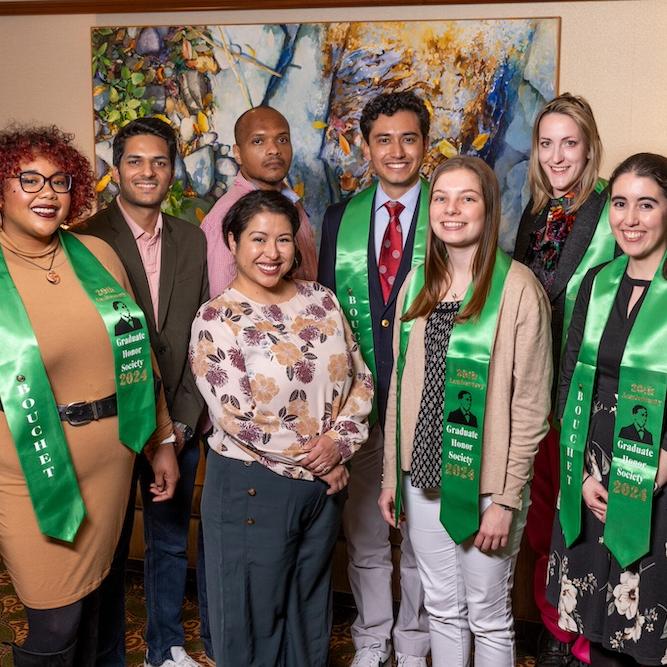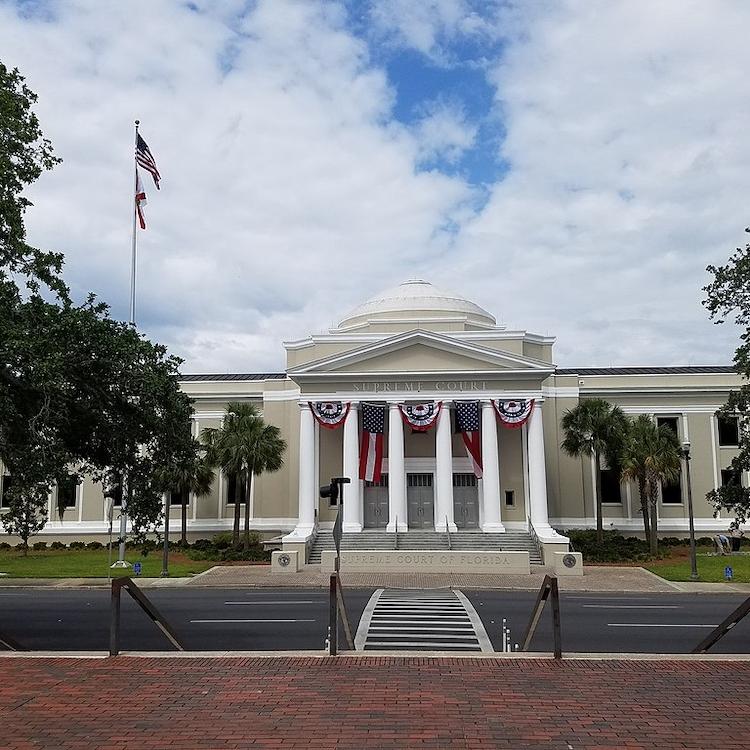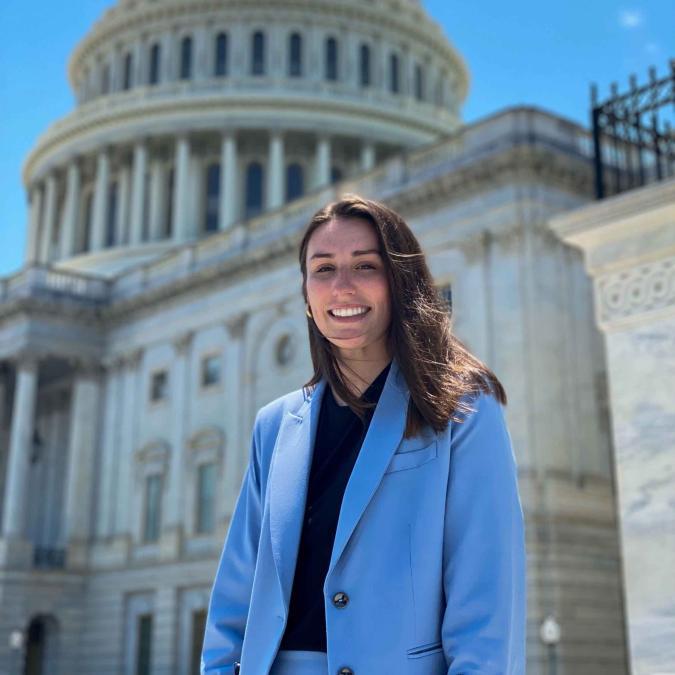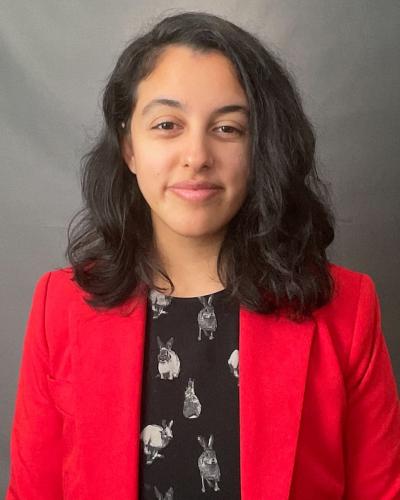Katherine Zaslavsky has been selected to join the Cornell Chapter of the Bouchet Graduate Honor Society. Katherine and nine other graduate students from across the University comprise Cornell' 2024 class of Bouchet Scholars.
In the spirit of Dr. Edward A. Bouche, the five priority areas of the society include character, leadership, scholarship, service, and advocacy.
We sat down with Katherine to learn more about what it means for her to receive this competitive and prestigious accolade and to hear about her plans for the future.
How does it feel to have your hard work recognized and receive this honor?
"The Bouchet Honor Society is an especially humbling honor, because it's grounded in academic achievement and in histories of representation. It was founded in 2005 by Howard University and Yale University in honor of Dr. Edward Alexander Bouchet, who was the sixth person in the Western hemisphere to earn a doctorate, and the first self-identified Black scholar to do so. Talk about a legacy! As an Indo-Guyanese scholar, I feel the best kind of responsibility to uphold the traditions of rigor, of equity, of the pursuit of knowledge for common good, and of embracing science for its commitment to truth beyond any accolades. In a way, being accepted to the Bouchet Honor Society is both an honor and a promise, to pave the way for a better academic world in the footsteps of those who came before us."
As you reflect on your years at Cornell and in the Sociology department, what are you most grateful for?
"I've been lucky to have learned from many people: my stellar mentors, especially my chairs Filiz Garip and Landon Schnabel, the fantastic staff in Sociology, CSI, CPC, and CCSS, and of course the graduate students who are the core of my community. Cornell, like all powerful institutions, was built through a checkered history, and it's brave and honest enough to address head-on. Institutionally, this is where trust lives or dies. I'm proud and grateful to be in community with people who carry out this mission in their everyday lives and model it for scholars like me, people who take their responsibility as educators seriously and have taught me how to pass on that spirit of excellence. We're scientists, but we're also people, and it's a really joyful thing to exist as both and bring the humility of humanity to the work we do."
What’s next? What excites you about the future, and which aspects of your research-to-date do you want to expand upon and dive deeper into?
"After finishing my degree, I just want to keep working! This is the problem (and the solution?) with following your passion into graduate school - you never want to stop. I study the value of representation in politics, media, and economics, so after I graduate I'm developing my dissertation into a book. Representation is one of those things that people understand instinctively, but the laws of how it works and the value it holds are still nebulous. This is the sweet spot for social scientists: the things that seem self-evident but aren't mechanically and historically mapped out. I'd like to go through the evidence I'm collecting, from how television reviews talk about identity to experiments on voting patterns, and hold it up to the light in a more public project. And it is election season, so of course I'm looking to see what people pay attention to - after all, the real value of representation isn't in what you see, but what you choose to look at."

